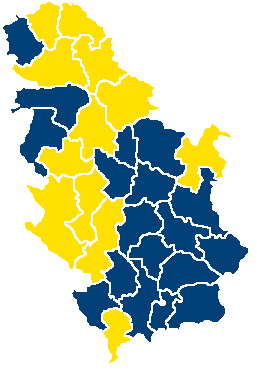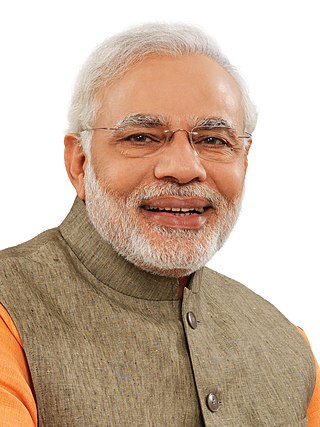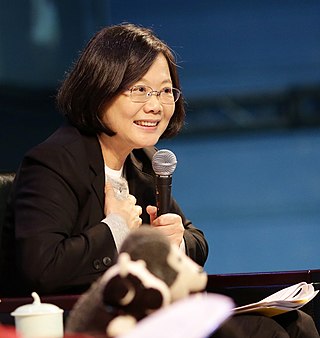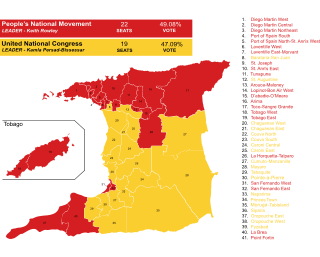
The Special Relationship is a term that is often used to describe the political, social, diplomatic, cultural, economic, legal, environmental, religious, military and historic relations between the United Kingdom and the United States or its political leaders. The term first came into popular usage after it was used in a 1946 speech by former British Prime Minister Winston Churchill. Both nations have been close allies during many conflicts in the 20th and the 21st centuries, including World War I, World War II, the Korean War, the Cold War, the Gulf War and the war on terror.

General elections were held in Bangladesh on 29 December 2008. The two main parties in the election were the Bangladesh Nationalist Party (BNP), led by Khaleda Zia, and the Bangladesh Awami League Party, led by Sheikh Hasina. The Bangladesh Awami League Party formed a fourteen-party Grand Alliance including Ershad's Jatiya Party, while the BNP formed a four-party alliance which included the Islamist party Jamaat-e-Islami. The election was originally scheduled for January 2007, but it was postponed by a military-controlled caretaker government for an extended period of time.

Presidential elections were held in Serbia on January 20 and February 3, 2008. Incumbent President Boris Tadić was re-elected as president in the second round with 51% of the vote, defeating challenger Tomislav Nikolić.

General elections were held in India in nine phases from 7 April to 12 May 2014 to elect the members of the 16th Lok Sabha. With 834 million registered voters, they were the largest-ever elections in the world until being surpassed by the 2019 election. Around 23.1 million or 2.71% of the total eligible voters were aged 18–19 years. A total of 8,251 candidates contested the 543 elected Lok Sabha seats. The average election turnout over all nine phases was around 66.40%, the highest ever in the history of Indian general elections until 2019 election.

General elections were held in Turkey on 12 June 2011 to elect the 550 members of Grand National Assembly. In accordance to the result of the constitutional referendum held in 2007, the elections were held four years after the previous elections in 2007 instead of five.

South Sudan–United States relations are the bilateral relations between the Republic of South Sudan and the United States of America.

Presidential elections were held in Iran on 19 May 2017, the twelfth of such elections. Local elections were held simultaneously.
International reactions to the November 8, 2016, election of Republican Donald Trump emerged from around the world, including states, other institutions, and people.

The Trump–Tsai call was a telephone conversation between the U.S. President-elect Donald Trump and the President of the Republic of China Tsai Ing-wen which took place on December 2, 2016. This event marked the first time since 1979 that a U.S. president or President-elect had directly spoken with a ROC President. In the call, Tsai congratulated Trump for his victory in the presidential election. The two leaders spoke for around 10 minutes, focusing on politics, economy, and security in Asia-Pacific. Following the call, Trump publicized this on Twitter and Facebook and said thank you to "the President of Taiwan". After Trump's transition team confirmed the event, the Presidential Office of Taiwan released a statement about the content of the call.
Presidential elections were held in the Maldives on Sunday, 23 September 2018. Incumbent president Abdulla Yameen of the Progressive Party of Maldives (PPM) was seeking re-election for a second five-year term. His only challenger was Ibrahim Mohamed Solih of the Maldivian Democratic Party (MDP), who was nominated as the joint candidate of a coalition of opposition parties.
International reactions to the 2018 Malaysian general election are the reactions after Pakatan Harapan successfully obtained the majority seat in the Parliament. It was the first transition of power in the Government of Malaysia since the independent of Malaysia ending the 61-year reign of the ruling Barisan Nasional. Following a decisive victory for Pakatan Harapan in the 2018 election, Mahathir Mohamad was sworn in as Prime Minister on 10 May 2018.

The 2019 Sri Lankan presidential election was the 8th presidential election, held on 16 November 2019. Incumbent president Maithripala Sirisena did not run for a second term. Gotabaya Rajapaksa, brother of former president Mahinda Rajapaksa, was the candidate of the Sri Lanka Podujana Peramuna and was endorsed by the Sri Lanka Freedom Party. Sajith Premadasa, son of former president Ranasinghe Premadasa and deputy leader of the United National Party was the candidate of the ruling party.

General elections were held in Trinidad and Tobago on Monday, 10 August 2020, to elect 41 members to the 12th Trinidad and Tobago Republican Parliament. It was the 14th election since gaining independence from the United Kingdom in 1962 and the 22nd national election in Trinidad and Tobago ever. Tracy Davidson-Celestine, political leader of the Tobago Council of the People's National Movement (PNM) became the first woman to lead a Tobagonian political party with representation in the House of Representatives. Additionally, two of the three largest parties elected in 2015, the United National Congress (UNC) and the Congress of the People (COP), were led by women.

General elections were held in Indonesia on 14 February 2024 to elect the president, vice president, and People's Consultative Assembly (MPR), which consists of the House of Representatives (DPR), the Regional Representative Council (DPD), and members of local legislative bodies (DPRD) at the provincial and city/regency levels. The newly elected members of the MPR would be sworn in on 1 October 2024, while the elected president and vice president would be sworn in on 20 October 2024. Incumbent President Joko Widodo was ineligible to run for a third term due to limitations established by the Indonesian constitution.

Presidential elections were held in Somaliland on 13 November 2024. In the election, incumbent President Muse Bihi Abdi of the Kulmiye party was seeking a second and final term in office against the opposition candidates Abdirahman Mohamed Abdullahi of the Waddani party, and Faysal Ali Warabe of the UCID party. The election was held concurrently with an election to determine the three national political parties for the next decade.

General elections were held in Argentina on 22 October 2023 to elect the president, vice president, members of the National Congress, and the governors of most provinces. As no presidential candidate won a majority in the first round, a runoff was held on 19 November, in which Javier Milei defeated Sergio Massa to become President of Argentina. Incumbent president Alberto Fernández and incumbent vice president and former president Cristina Fernández de Kirchner, despite both being eligible for a second, consecutive term, did not seek re-election.

The 2023 Bangladeshi presidential election was scheduled for Sunday, 19 February 2023 to elect the 22nd president of Bangladesh. However, nominations closed at noon on 12 February and the Awami League politician Mohammed Shahabuddin Chuppu, who had been nominated in accordance with the provisions of the Constitution, was the only candidate nominated. On 13 February 2023, Shahabuddin was thus officially elected as the country's 22nd president as he was unopposed.

Presidential elections were held in the Maldives on Saturday, 9 September 2023, with a second round held on 30 September. Incumbent president Ibrahim Mohamed Solih was seeking re-election, after defeating the-then Speaker of the People's Majlis Mohamed Nasheed in the Maldivian Democratic Party primaries. People's National Congress candidate and Malé mayor Mohamed Muizzu won the election with 54% of the votes, defeating Ibrahim Mohamed Solih and becoming President-elect of the Maldives. It was the fourth consecutive election in which a Maldivian president failed to win reelection, the last to do so having been Maumoon Abdul Gayoom, who ran unopposed, in 2003.

Presidential elections were held in Indonesia on 14 February 2024 with defence minister and former general Prabowo Subianto contesting the elections against the former governor of Jakarta, Anies Baswedan and the former governor of Central Java, Ganjar Pranowo; incumbent president Joko Widodo was constitutionally barred from seeking a third term in office.
International reactions to the 2024 Venezuelan presidential election of Incumbent President Nicolás Maduro on 28 July 2024 emerged from around the world, including from states and international institutions.














